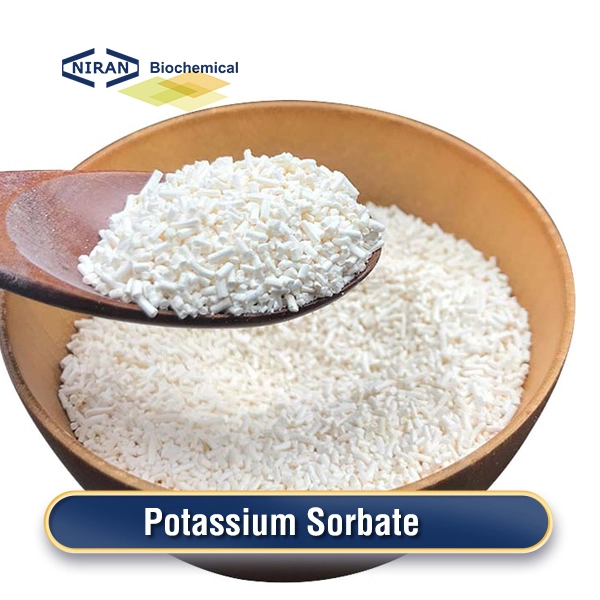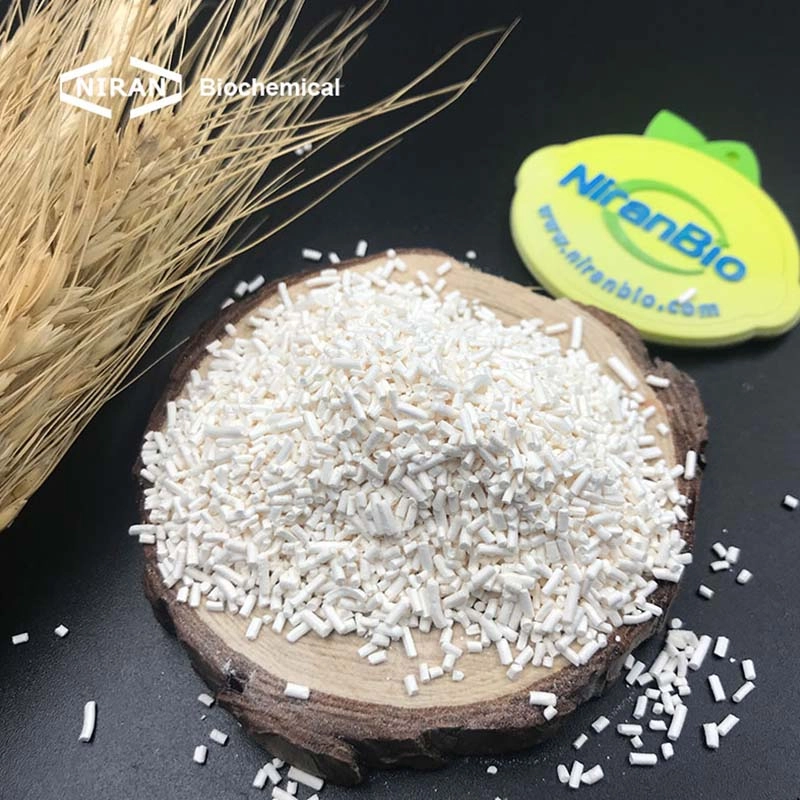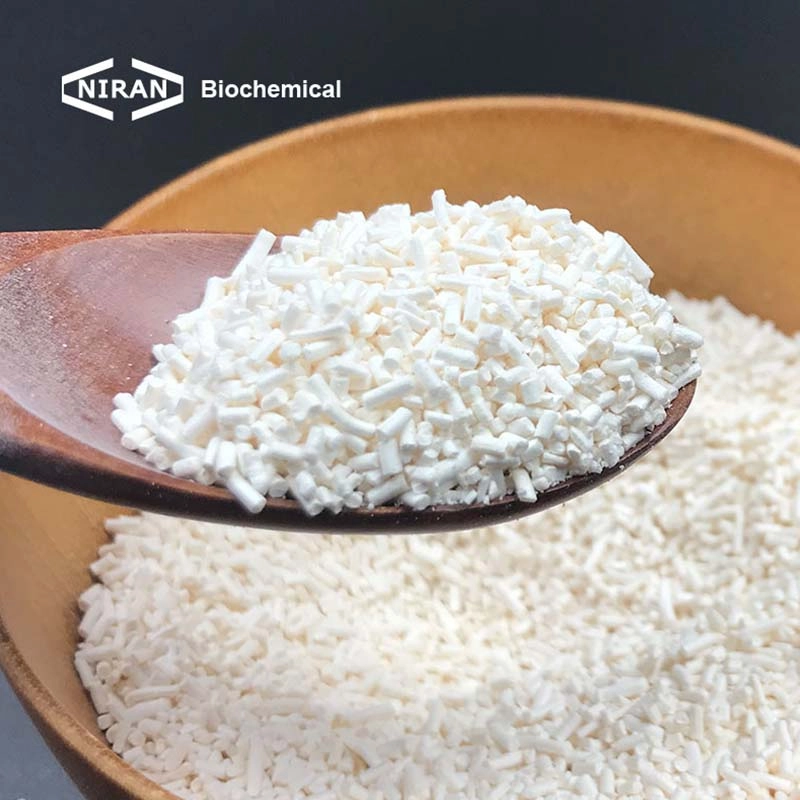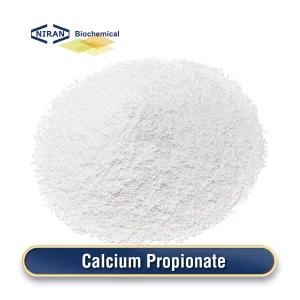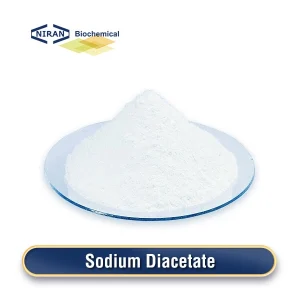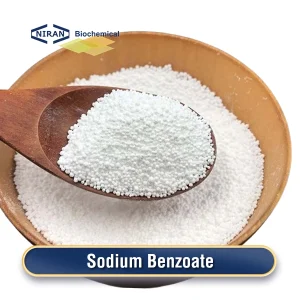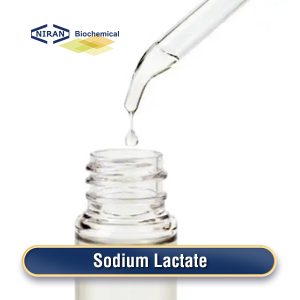Niran Biochemical
YOUR RELIABLE FOOD INGREDIENTS
Send Inquiry
Home » Products » Preservatives » Potassium Sorbate-Food Grade
Potassium Sorbate-Food Grade
- CAS: 24634-61-5; 590-00-1
- Chemical Formula: C6H7KO2
- Certification: KOSHER, ISO, HALAL, FSSC22000, BRC, etc.
- Standard: FCC/E202
- MOQ: 1000KG
- Shelf Life: 2 Years
Inquire Product
Product Description
What is Potassium Sorbate?
Potassium sorbate is white granules or powder, and the granules are used the most, mostly in columnar shape, and there are also a few spherical granules. It is odorless or slightly odorous. It is easy to absorb moisture and discolor due to oxidation and decomposition when exposed to air for a long time. It is widely used for food, cosmetics, and feed preservation due to its easy absorption and metabolism by the human body, leaving no residues and being non-toxic.
Potassium sorbate is extracted from naturally occurring fruits or plants, such as apples, pears, and persimmons. The extraction method can be water extraction or alcohol extraction, but it is not often used in industry due to its low extraction efficiency and high cost. At present, chemical synthesis is mainly used in industry to produce potassium sorbate. The chemical synthesis method is to react with high-quality sorbic acid and potassium alkali under certain reaction conditions to generate potassium sorbate.
In the preparation process, the main factors to consider are the effects of reaction temperature, reaction time, and reactant molar ratio on reaction rate and yield.
Related parameters:
| Items | Standards |
| Assay | 99.0%-101.0% |
| Meiting range | 133℃~135℃ |
| Sublimation point | 80℃ |
| pH value | 8.5~10.5 |
| Loss on drying | 1% Max |
| Alkainity (as K2CO3) | 1% Max |
| Aldehydes (as formaldehyde) | 0.1% Max |
| Heavy Metals(as Pb) | 10 ppm Max |
| Mercury | 1 ppm Max |
| Lead | 2 ppm Max |
| Arsenic | 2 ppm Max |
Recommended dosage:
| Food name | Maximum usage(g/kg) |
| Carbonated drinks | 0.1 – 0.3 g/kg |
| Fruit juices | 0.1 – 0.3 g/kg |
| Cakes and pastries | 0.1 – 0.5 g/kg |
| Jams and jellies | 0.3 – 0.5 g/kg |
| Yogurt | 0.2 – 0.3 g/kg |
| Sausages | 0.1 – 0.2 g/kg |
| Deli meats | 0.1 – 0.3 g/kg |
| Ketchup and sauces | 0.1 – 0.3 g/kg |
| Extruded snacks | 0.1 – 0.2 g/kg |
| Vegetables | 0.1 – 0.3 g/kg |
| Pickled seafood | 0.1 – 0.3 g/kg |
| Salad dressings | 0.1 – 0.3 g/kg |
| Marinades | 0.1 – 0.3 g/kg |
Potassium Sorbate has a wide range of uses
1. Food preservatives
Potassium sorbate, being hygroscopic and readily soluble in water and ethanol, is primarily utilized for preserving perishable items. It is commonly added to cheese, yogurt, ice cream, and other dairy products susceptible to mold, as well as various processed foods like canned fruits and desserts, effectively extending their shelf life.
2. Beauty and Hair Care
Apart from its food applications, potassium sorbate is extensively utilized across various industries, including cosmetics. It serves as a preservative in beauty products prone to mold and spoilage, such as shampoo, hair spray, and skin creams, effectively extending their shelf life.
3. Winemaking
Potassium sorbate is commonly utilized in winemaking to maintain the flavor stability of red wine. Without potassium sorbate, the taste of red wine may alter during fermentation. Furthermore, soft drinks, fruit juices, and sodas frequently employ potassium sorbate as a preservative.
User asked question:
Q: What is the safest preservative?
A: Common preservatives include sodium benzoate (meat, fish and other meat products), potassium sorbate (beverages, jam, candy, etc.), nitrite (cured products, canned meat, etc.), acetate (cakes, candied fruits, etc.), etc. They all have good preservative functions. The key is that you choose its purpose.
Q: Is potassium sorbate safe for skin?
A: Potassium sorbate is a preservative and a food additive. Generally, potassium sorbate is harmless to the skin. Since potassium sorbate is a weak acidic substance, if it comes into direct contact with the skin, it may cause some irritation to the skin, causing symptoms such as itching, redness, swelling, and pain. At this time, the patient needs to wash the skin with clean water in time, and apply paeonol ointment, buprenorphine cream and other drugs for local treatment as prescribed by the doctor.

